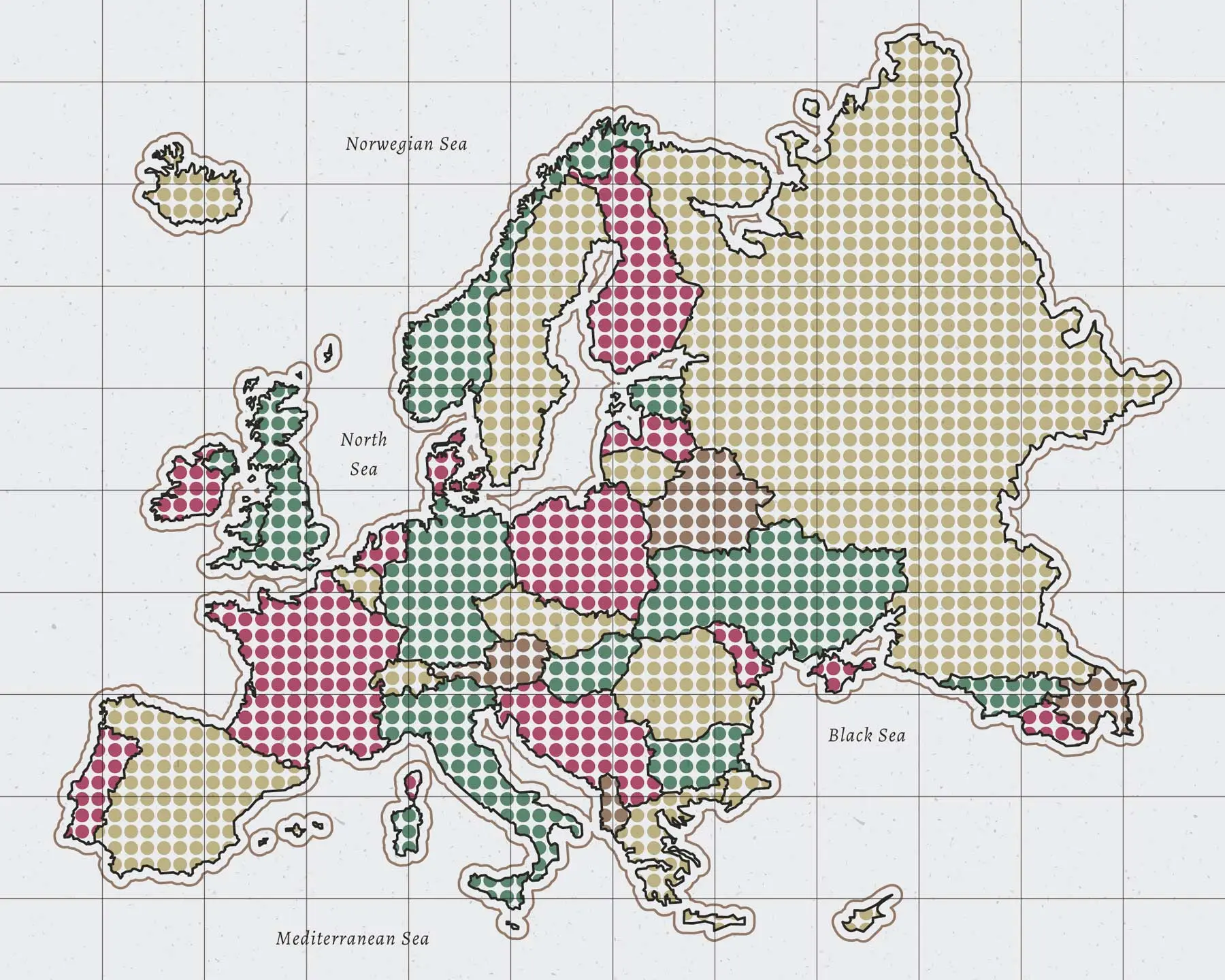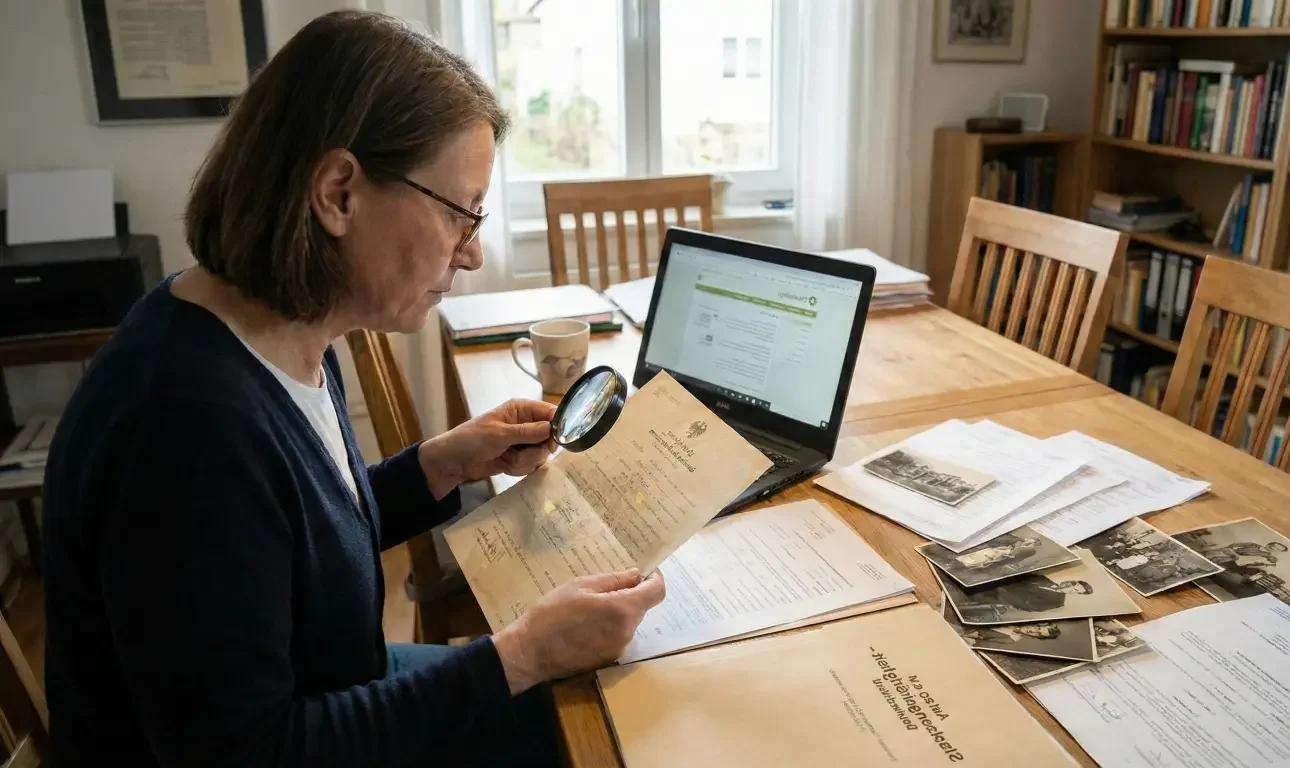Imagine holding a passport that not only connects you to your ancestral roots but also opens doors to one of the world’s most influential regions. With European Union (EU) citizenship by descent, this vision can become your reality. Throughout history, countless individuals and families have carried their traditions, languages, and stories across continents. Today, many of their descendants are discovering that a legal link to an EU member state can grant them an array of life-changing benefits—ranging from effortless movement within Europe’s borders to generational opportunities in education, employment, and cultural immersion.
In an increasingly uncertain world, having EU citizenship can serve as a kind of “future-proofing” for you and your family. Economic ups and downs, political instabilities, shifting visa regulations—all these can feel less daunting if you have a secure tie to a stable region known for strong human rights records, robust social systems, and abundant professional opportunities. If you’ve ever wondered if your European heritage could translate into tangible advantages, you’re in the right place. This guide will dive deeply into everything you need to know: the key benefits, the application process, eligibility criteria, and how to navigate the complexities so you can confidently claim your EU citizenship by descent.
Understanding EU Citizenship by Descent
EU citizenship by descent is a legal pathway allowing individuals to acquire citizenship based on the nationality of a parent, grandparent, or sometimes even a more distant ancestor who was born in—or became a citizen of—an EU country. While the word “descent” might sound straightforward, in reality, it involves carefully tracing your family tree and providing verifiable documentation that connects you to a European ancestor.
The concept is rooted in “jus sanguinis,” a Latin term meaning “right of blood.” Under this principle, many European countries pass citizenship from generation to generation, as long as no one in the lineage has formally renounced that right. Countries like Italy, Ireland, Germany, and several others have well-defined legal frameworks that allow foreign-born descendants to reclaim the citizenship their ancestors once held.
Why This Matters Now More Than Ever
In a rapidly changing world, having a second citizenship can serve as an invaluable form of insurance. The EU is known for its political stability, high standard of living, and extensive social benefits. By obtaining an EU passport through descent, you can ensure:
- Long-Term Security: If political climates shift, having the option to reside in a stable European nation offers peace of mind.
- Mobility and Freedom: EU citizenship grants unfettered access to 27 member countries, allowing you to work, study, travel, and settle with minimal bureaucratic hurdles.
- Generational Legacy: By formalizing your claim to citizenship now, you enable your children and grandchildren to benefit from these opportunities. Without you taking action, your descendants might lose this pathway forever.
Key Benefits of EU Citizenship by Descent
The advantages of claiming EU citizenship by descent go far beyond a legal title. When you secure your citizenship, you open up a world of opportunities.
1. Freedom of Movement
One of the most appealing aspects of EU citizenship is the ability to move freely within the European Union. For citizens of non-EU countries, extensive visas and bureaucratic red tape often stand between them and a life in Europe. But as an EU citizen, you can enter, leave, and travel around 27 EU countries without immigration checks or special permissions.
This freedom isn’t merely about leisure travel, either. It allows you to seek career opportunities in Europe’s thriving cities—be it Berlin’s booming tech scene, Milan’s fashion industry, or Dublin’s financial hub. You can move to a new country to learn a language, immerse yourself in a new culture, or gain access to world-class universities with lower tuition fees than most international students face.
2. Right to Live, Work, and Study
With EU citizenship, you can live and work in any member state without needing a work permit. This can significantly broaden your professional horizons. Maybe you’re dreaming of starting a new career in Amsterdam’s creative sector or launching a startup in Lisbon’s entrepreneurial ecosystem. Having the status of an EU citizen removes the barrier of restrictive work visas, allowing you to explore these avenues more easily.
For students, EU citizenship can drastically reduce the cost and complexity of pursuing higher education in Europe. Many EU citizens pay local or EU resident tuition rates, which are often considerably lower than international fees. Additionally, you may gain access to scholarships and grants not available to non-EU applicants.
3. Healthcare and Social Benefits
Most EU countries boast high-quality healthcare systems. As an EU citizen, you typically qualify for public healthcare, often at reduced or no direct cost. This ensures access to medical services that might be prohibitively expensive elsewhere. Social safety nets, including unemployment benefits, pension schemes, and parental leave benefits, are also often available, adding another layer of security for you and your family.
4. Political Rights and Participation
EU citizenship also grants you the right to vote and run for office in local and European Parliament elections, even if you reside in another member state. This gives you a voice in the political discourse shaping Europe’s future, allowing you to engage with issues that matter most to you, from environmental policies to social justice initiatives.
5. Cultural and Personal Enrichment
Reclaiming your ancestral citizenship can create a powerful personal connection to your family’s roots. You’ll have the opportunity to rediscover your heritage, learn or strengthen your language skills, and become intimately familiar with the cultural traditions that shaped your ancestors’ lives. This connection can be deeply meaningful, creating a sense of belonging and continuity across generations.
Eligibility: Determining Your Claim
While the general concept of EU citizenship by descent is straightforward, eligibility criteria differ from one country to another. For example:
- Italy: Italy’s rules allow individuals to claim Italian citizenship by descent if no ancestor in their direct lineage ever renounced Italian citizenship. This potentially extends far back, making Italy a prime candidate for those with distant Italian roots.
- Ireland: Ireland typically grants citizenship to those with at least one grandparent born in Ireland. Irish law is famously generous, extending citizenship through grandparents. If you had an Irish grandparent, you could join Ireland’s cultural tapestry and enjoy the benefits of an Irish (and thus EU) passport.
- Germany: German citizenship by descent laws have evolved over the years. Generally, if one of your parents was a German citizen at the time of your birth, you may qualify. Those descended from Germans who were forced to flee Nazi Germany have special, more accessible pathways to reclaim citizenship.
Many other EU countries—such as Poland, Spain, Portugal, and Greece—offer varying paths to citizenship by descent. Some require only one grandparent; others may allow great-grandparent claims. The key is to research the specific requirements of your target country thoroughly.
Common Eligibility Conditions
- Direct Lineage: You must prove a direct, unbroken line of descent from the ancestor who held citizenship in the EU country.
- No Renunciation: If any ancestor renounced citizenship before passing it down, you might not qualify under that lineage.
- Legal Documentation: Birth certificates, marriage records, death certificates, and naturalization documents are crucial. Every document must be authentic, correctly translated, and sometimes even legalized (apostilled).
Preparing for the Application Process
The application process for EU citizenship by descent can be likened to an investigative project. The more organized and diligent you are, the smoother it will be.
1. Genealogical Research
Your journey typically starts with genealogical research. Begin by interviewing family members. Gather old documents, stories, and hints about your ancestral origins. Access online genealogical databases, consult public records, and consider professional genealogists or document retrieval services if the trail runs cold.
As you uncover records, keep meticulous notes. For each ancestor, note their place of birth, marriage date, emigration details, naturalization papers, and death records. This foundation will make the rest of the process much simpler.
2. Document Assembly
Once you have your family tree and ancestral details mapped out, the next step involves collecting the necessary documents. Commonly required documents include:
- Birth Certificates: For you, your parent(s), and the ancestor from whom you are claiming.
- Marriage Certificates: Especially relevant if your lineage passes through female ancestors, as some countries consider citizenship rules differently before certain dates.
- Death Certificates: Confirming the lineage and closing the generational loop.
- Naturalization Records: If your ancestor became a citizen elsewhere, you must clarify whether they renounced their original nationality.
- Name Change Records: If there were any changes in spelling of family names over time, you’ll need to clarify and document these discrepancies.
3. Translation and Legalization
Many EU countries require that documents originally issued in another language be professionally translated. In addition, these documents often need to be authenticated via an apostille or a similar legalization process. This verifies the authenticity of the document to the foreign government entity reviewing your case.
4. Professional Assistance
Navigating these bureaucratic channels can be complex. Consider hiring an attorney or an immigration consultancy specializing in citizenship by descent. A seasoned professional can help identify gaps in your documentation, recommend strategies to strengthen your application, and facilitate the submission process. Their expertise can save you months, if not years, of headaches and uncertainty.
Filing Your Application
When you have assembled all required documentation, the next step is to file your application. The process varies by country, but generally involves:
- Submitting Your Application: You’ll typically submit your paperwork to the appropriate consulate or embassy if you’re applying from abroad, or directly to the relevant government agency if you’re in the country.
- Paying Application Fees: There will likely be a fee for processing your application. Make sure you understand the costs upfront.
- Attending an Interview (If Required): Some countries require an in-person interview. This might include reviewing your documents, verifying your language proficiency (if relevant), or confirming your family’s historical ties.
- Waiting for a Decision: Processing times vary widely. It could take several months to over a year. Patience is essential, and you should avoid any life-changing decisions (like selling property or leaving jobs) until you have your citizenship confirmed.
Tips for a Smooth Application
- Be Thorough: Missing documents or incomplete forms can lead to delays or rejections.
- Stay Organized: Keep copies of everything you submit. Keep digital scans and track your application’s progress.
- Communicate Politely and Persistently: Consular staff are often busy. Polite inquiries at reasonable intervals can help you stay informed without causing friction.
Examples of Popular EU Countries for Citizenship by Descent
While many EU member states allow citizenship by descent, some are more sought-after due to generous policies or widespread diaspora communities.
Italy
Italian citizenship by descent is renowned for its flexibility. If you can prove a direct lineage to an Italian ancestor who never formally renounced Italian citizenship, you may claim it—even several generations later. Because of extensive Italian emigration to the United States, Australia, and South America in the late 19th and early 20th centuries, millions of descendants can potentially apply. Italy’s cultural allure, high standard of living, and gateway to the entire EU make it a favored option.
Ireland
Irish citizenship by descent is one of the most accessible in the EU, particularly if you have a grandparent born in Ireland. Ireland’s diaspora is vast, extending to countries like the United States, Canada, Australia, and the UK. Beyond the practical benefits of EU citizenship, many Irish descendants feel a strong emotional pull towards the Emerald Isle’s rich history, music, literature, and cultural heritage.
Germany
German citizenship by descent can be more nuanced due to historical events and changes in nationality law. However, for those who qualify, it can be a significant asset. Germany is Europe’s largest economy and a global leader in engineering, technology, and innovation. If your ancestry leads you to Germany, you’ll gain access to a country recognized for its high quality of life, excellent public services, and robust job market.
Other Countries
Don’t overlook countries like Poland, Portugal, Spain, Greece, France, and Austria, each offering their own unique citizenship by descent pathways. Some might require language tests or have cut-off generations, so research is critical. If your lineage is mixed—say part Italian, part Irish—explore which path is most straightforward and beneficial.

Data-Driven Insights: Why It’s Worth the Effort
Recent studies show a growing trend of individuals seeking EU citizenship. The year-on-year increase in applications for Irish and Italian citizenship in the past decade demonstrates that more people are recognizing the strategic advantages of holding an EU passport. For instance, Italian authorities have reported thousands of new citizenship-by-descent applications annually, reflecting a global appetite for these opportunities.
For professionals, data highlight higher average salaries and better work-life balance in many EU countries. The OECD Better Life Index consistently ranks several EU nations at the top in terms of education quality, healthcare services, and environmental standards. The EU’s diverse economy also means that job seekers can pivot industries or move countries without being restricted by visa barriers. This interconnectivity and flexibility is simply unparalleled.
Storytelling: One Family’s Journey to EU Citizenship
Consider the story of Maria, a U.S. citizen with Italian grandparents who left Tuscany at the turn of the 20th century. Growing up, Maria heard stories of her grandmother’s life in a small Italian village. As Maria entered adulthood, she became curious: Could she reconnect with that legacy in a tangible way?
Armed with family records and guided by a citizenship consultant, Maria spent a year gathering documents. She uncovered her grandmother’s birth certificate in a municipal archive in Florence. She located her grandfather’s naturalization papers that stated he never renounced his Italian citizenship. The puzzle pieces fit together perfectly.
A year later, Maria walked out of the Italian consulate with official recognition of her Italian citizenship. With her new Italian passport, Maria didn’t just gain the ability to work in Europe—she rekindled a family legacy. She now frequently visits Italy, exploring ancestral hometowns, meeting distant relatives, and feeling deeply connected to her past. She also plans to retire in Italy, enjoying the healthcare and social benefits that come with EU citizenship. For Maria, this wasn’t merely a bureaucratic victory; it was a personal renaissance.
Actionable Steps: How to Get Started
Feeling inspired? Here’s how to turn your curiosity into a concrete action plan:
- Trace Your Lineage: Start with what you know. Talk to older relatives, gather as much info as possible.
- Research Country Laws: Identify which EU country your ancestors came from and review its citizenship rules online.
- Contact the Embassy or Consulate: They can provide official guidelines and checklists.
- Collect Documents Early: Get multiple copies of birth, marriage, and death certificates. Secure translations and apostilles.
- Consider Professional Help: If the process seems daunting, reach out to a citizenship attorney or immigration firm specializing in EU citizenship by descent.
Overcoming Common Obstacles
Not every descent claim is straightforward. You may hit roadblocks, such as missing documents, conflicting name spellings, or uncertain ancestry timelines. Don’t panic. Consider these solutions:
- Genealogy Experts: Professional genealogists can help locate elusive records or navigate foreign archives.
- Community Forums: Join online communities of individuals seeking the same citizenship. Their shared experiences can offer valuable tips and moral support.
- Legal Experts: Attorneys who specialize in citizenship law can provide clarity on complicated eligibility issues and guide you through the process.
Ensuring a Legacy for Future Generations
One of the most remarkable aspects of securing EU citizenship by descent is the gift you give to your descendants. Your children—and their children—will inherit this citizenship, making them citizens of both their birth country and the EU member state. This duality can shape their educational choices, their career pathways, and even their personal identities.
By acting now, you create a legacy. Once the citizenship line is “broken” by an ancestor who does not claim it or who renounces it, the process can become significantly more challenging, or even impossible, for future generations. Securing your citizenship today ensures that your grandchildren can study in France, work in Sweden, or retire in Portugal, carrying the family’s cultural tapestry forward.
Sustainability, Innovation, and Global Networks
EU citizenship isn’t just a status—it’s a gateway to involvement in one of the most progressive regions in the world. Europe leads in sustainability initiatives, human rights, and cutting-edge scientific research. By becoming an EU citizen, you align yourself with values that emphasize environmental protection, cultural diversity, and social equality.
In the professional sphere, holding EU citizenship can open doors to extensive professional networks and entrepreneurial ecosystems. You can tap into EU funding programs, participate in European business incubators, and attend conferences and workshops without facing the visa and travel constraints that non-EU citizens often encounter.
A Solid Foundation for the Future
As the world grapples with challenges like climate change, geopolitical tension, and public health crises, having a strong legal and cultural anchor in Europe can provide resilience. EU institutions, while not perfect, generally offer stability and frameworks to deal with global issues collectively. Becoming a citizen of an EU member state makes you part of that collective voice and decision-making process.
Before you take the next step, consider seeking professional support to make the journey smoother. 3A Immigration Services specializes in guiding individuals through the complex process of obtaining EU citizenship by descent. With years of experience, their dedicated team can help you:
- Verify your eligibility.
- Obtain and legalize essential documents.
- Navigate consular appointments and interviews.
- Prepare a flawless application package.
Why go it alone when expert guidance is at your fingertips? Contact 3A Immigration Services today and move forward confidently, knowing you have a trusted partner by your side.
Conclusion
Claiming EU citizenship by descent is about more than acquiring a passport; it’s about embracing a richer life with security, mobility, and cultural depth. It’s about reclaiming a legacy that might have slipped away from your family decades ago. From enjoying freedom of movement across 27 countries and accessing world-class healthcare to pursuing professional and educational opportunities that transcend borders, the benefits are undeniable.
The process does require diligence, research, and patience. You’ll need to gather documents, meet eligibility criteria, and sometimes navigate complex legal frameworks. Yet, countless successful applicants prove that with the right guidance and a systematic approach, you can achieve this remarkable goal.
By securing your EU citizenship, you not only invest in your own future but also ensure that your descendants have a gateway to Europe’s rich tapestry of opportunities. In a world of constant change, holding an EU passport can offer peace of mind, personal growth, and a cherished connection to your family’s past. Your European heritage can become a tangible asset, enriching your life and the lives of those who come after you.
Related Links:
Understanding Italian Citizenship by Descent
Irish Citizenship by Descent Guide






